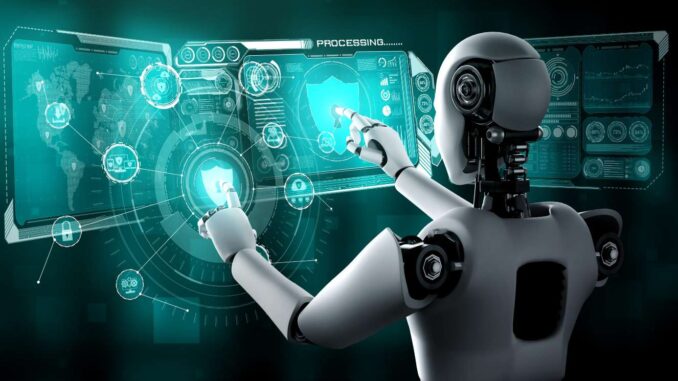
Artificial Intelligence (AI) has transformative applications in the field of Information Technology (IT), enhancing efficiency, decision-making, and user experiences across various domains. Here are some major applications of AI in IT:
Automated IT Support: Chatbots and Virtual Assistants: AI-powered chatbots provide automated customer support, handling common queries and troubleshooting without human intervention.
Helpdesk Automation: AI systems can prioritize tickets, suggest solutions, and assist IT staff in resolving issues more efficiently.









Predictive Analytics:
System Performance Monitoring: AI algorithms analyze historical data to predict failures, optimize system performance, and improve uptime.
Capacity Planning: AI helps organizations anticipate future resource needs by analyzing usage patterns.
Cybersecurity:
Threat Detection: AI identifies unusual patterns and behaviors in network traffic that may indicate security threats or breaches in real-time.
Incident Response: Automated responses to potential threats can reduce the window of vulnerability and improve overall security posture.
Data Management:
Data Cleansing and Processing: AI tools automate the process of cleaning and organizing large datasets, improving data integrity and usability.
Natural Language Processing (NLP): AI can analyze unstructured data (e.g., emails, reports) to extract meaningful insights.
Software Development:
Code Generation: AI-driven tools can generate code snippets based on requirements, speeding up the development process.
Automated Testing: AI can create and execute tests, identify bugs, and suggest fixes, improving software quality.
Cloud Computing:
Resource Optimization: AI algorithms optimize the allocation of resources in cloud environments, leading to cost savings and improved performance.
Smart Scaling: AI can automatically scale resources up or down based on usage patterns and demand forecasts.
Enhanced User Experience:
Personalization: AI algorithms analyze user behavior to provide personalized content and recommendations in applications and services.
User Interface Design: Machine learning models can help design more intuitive and user-friendly interfaces based on user interactions.
IT Operations Management (AIOps):
Event Correlation and Analysis: AI systems analyze massive amounts of operational data to identify and correlate events for faster incident resolution.
Predictive Maintenance: AI predicts hardware failures and suggests maintenance schedules, reducing unexpected downtime.
Robotic Process Automation (RPA):
Automating Repetitive Tasks: AI enhances RPA by enabling bots to learn and improve workflows, automate data entry, and execute routine tasks with minimal human oversight.
Business Intelligence:
Enhanced Analytics: AI tools enable advanced analytics capabilities, providing deeper insights through data visualization, trend analysis, and forecasting.
Decision Support Systems: AI systems assist in decision-making by providing real-time insights and recommendations based on large datasets.
Blockchain and AI Integration:
Smart Contracts: AI can enhance blockchain applications by automating processes and analyzing data within smart contracts.
Fraud Detection: Combining AI with blockchain can improve the identification of fraudulent transactions.
IT Training and Skill Development:
Intelligent Tutoring Systems: AI-driven platforms can provide personalized training experiences for IT professionals, adapting content to individual learning styles and progress.
As AI continues to evolve, its integration with IT will lead to more innovative solutions, increasing operational efficiency, reducing costs, and driving better outcomes in various IT functions.


Leave a Reply